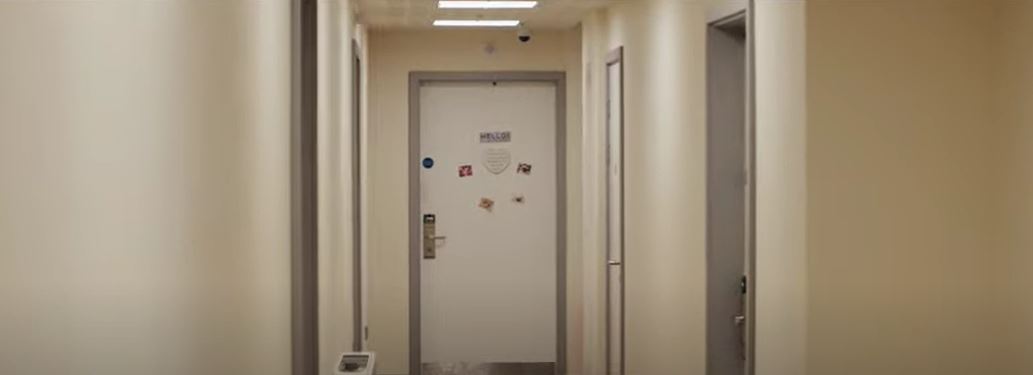Interview with manager James on Thames Reach’s COVID residential project
James Oladunjoye is lead manager at the Pontoon Dock Project, a temporary residential service run by Thames Reach to provide a space for people experiencing homelessness to safely isolate if they test positive for COVID19.

James Oladunjoye is lead manager at the Pontoon Dock Project, a temporary residential service run by Thames Reach to provide a space for people experiencing homelessness to safely isolate if they test positive for COVID19. We spoke with him to learn more about this essential and unique project, helping people stay safe during a public health crisis.
Can you tell us a bit about your project?
The need for the hotel arose out of the pandemic; we had a very similar service running last year but this iteration opened in January, commissioned by the Greater London Authority. Sleeping on the streets, or using shared facilities, is not safe if someone needs to isolate. The Pontoon Dock Project is made up of self-contained rooms with ensuite facilities, with staff available to support with anything, including food, drink, toiletries etc. We make sure people are provided with what they needin order to isolate in a safe and comfortable way.
How do you receive referrals for the project, and what is your capacity?
We work closely with University College London Hospitals (UCLH) Find and Treat team, who are a unit within the NHS who test people who are experiencing homelessness for COVID-19. They refer those with a positive result who cannot safely isolate where they are to us, but we also get referrals from other hostels and homelessness services in London. Approximately 70% of our residents are from hostels, including those run by Thames Reach, and then around 30% are people sleeping rough or being discharged from hospital or released from prison. We are a 20-bed unit and staff team of 8, and numbers of residents fluctuate as people will only stay between one and ten nights while they isolate.
What is the clinical support like on site?
This is also provided by the Find and Treat team; clinicians and doctors are on-site regularly, whether this is to see particular residents or for generalised check-ups and advice. The Thames Reach team also provide check-ups based on doctors’ advice for each resident, such as oxygen checks. Sometimes isolating can be incredibly lonely too, so we arrange socially distant sessions to check in on residents, sometimes they just want someone to talk to. Aside from this, we also ensure that all prescriptions are collected daily and distributed to residents so their recoveries are not interrupted.
What kind of support is offered for residents after they leave?
Although it is always a short stay, no one leaves Pontoon Docks without a plan in place; for example no one has ever been left to go back on the streets once their isolation period with us has ended. As some people come from hostels, their support will continue at their place of residence, but housing will be discussed with them during their stay, and options have included homeless emergency housing with a local authority, a hostel or the private rented sector.
Is there anything you’ve learned while working on this project that you will take forward to other Thames Reach services?
One thing that became clear right from the early days is trusting in Thames Reach policies. Initially we had people not wanting to isolate, and we had to ensure we were accommodating everyone as well as we could, including those with alcohol or substance dependencies. We have worked closely with drug and alcohol agencies to ensure those clients are supported in the safest way possible.
We had to get started up very quickly, but staff all the way up to and including management have been really helpful, really involved, always asking how they can help. It really shows how everyone cares about homelessness, rough sleeping and the challenges that come with it. Although the project is unique with its own challenges, everyone has chipped in. It’s a testament that Thames Reach as an organisation really care about what we’re doing.
